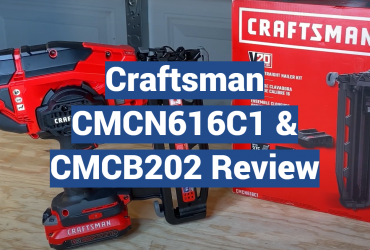Uses
The most that finish nail guns using 15-gauge and 16-gauge nails. They will push nails up to 2.5 inches. The 15-gauge nailer uses bigger nails and typically has an angled shape that enables it to enter small spaces. Features of finish nailers:- Creates a better, more stable grip than a brad nailer;
- Built for heavy duty tasks such as doors, steps, walls, crown and foundation frames, etc.;
- Works with pneumatic and cordless models;
- Installation of base moldings and crowns;
- For making door/window casings;
- To repair and fix cabinets, chair rails;
- To make exterior trim projects;
- For building staircases;
- Baseboards;
- For crown molds;
- Softwood and hardwood flooring;
- The nails in this tool are wider and thicker – they will do for many hard surfaces;
- These tools can be great for working with rough surfaces and tough materials. They are also powerful that may split thin materials;
- They are incredibly faster than hammers. Trim carpenters and woodworkers should pick these nailers to do their job more effectively;
- Provide a stronger permanent hold than most other nailer types. Its nails won’t go anywhere;
- Very versatile;
- You don’t have to reload this device frequently;

Recent Comments